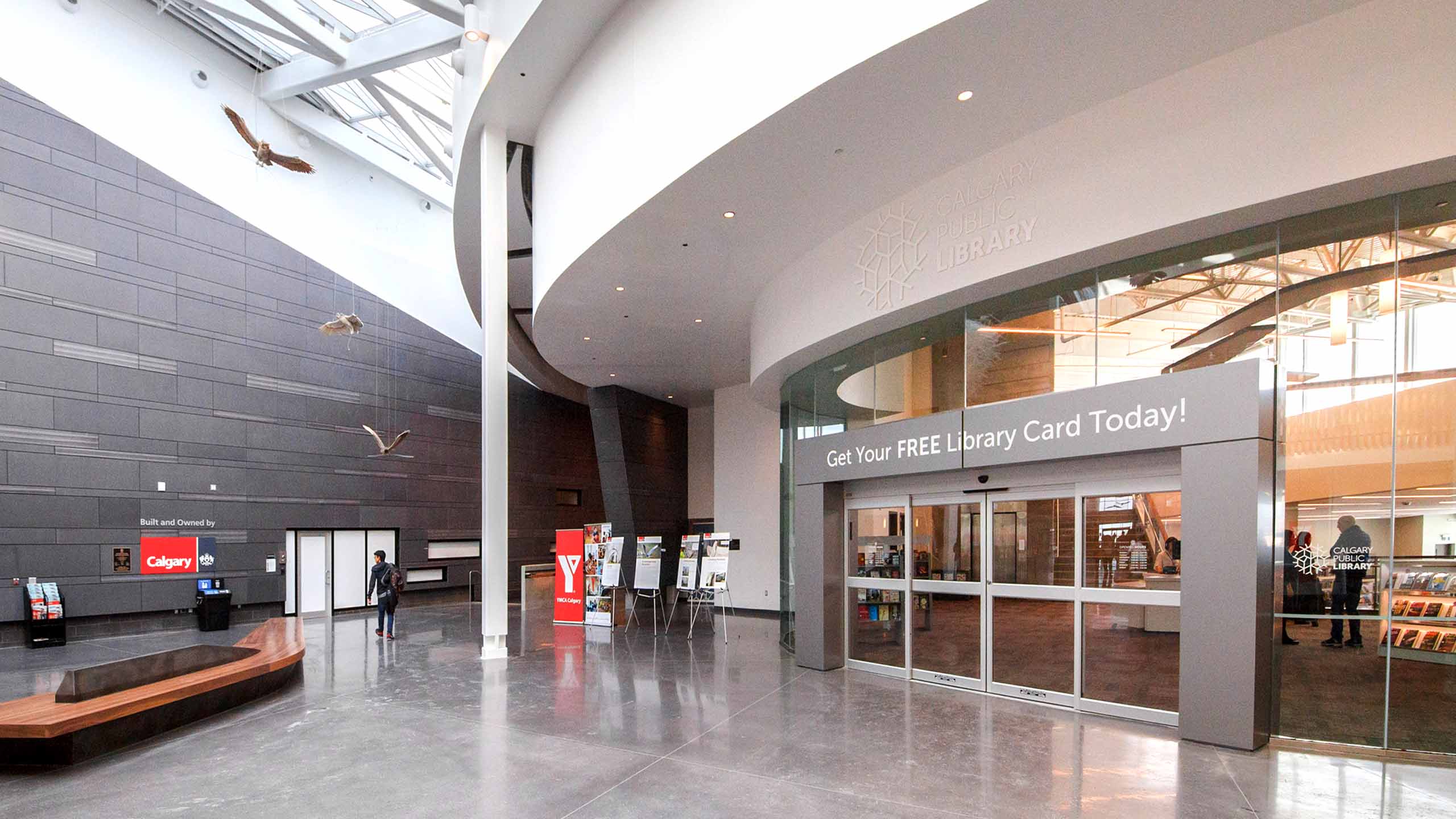Amidst a rising tide of anti-LGBTQ2S+ and anti-drag protests in Calgary, a pastor is facing multiple charges after disrupting a drag storytime event at one of the city’s public libraries.
Derek Reimer, 36, is accused of “aggressively enter[ing] a library classroom” and shouting homophobic and transphobic slurs at the parents and children who came to Calgary’s Seton Public Library for a Reading with Royalty event in February, according to the Calgary Police Service.
In a statement, police said “several individuals were … scaring the children while causing a disturbance and subsequently refusing to leave.” Library staff, helped by two of the event attendees, removed the protestors from the room before the police arrived.
Now, Reimer has been charged with one count of disturbing the peace and one count of mischief.
Police say a “hate motivation”—where an offender was motivated by bias, prejudice or hate based on the personal characteristics of a victim—won’t lead to any additional charges. However, “any evidence of it is considered by the courts after a person is found guilty of the connected crime,” police said. “If the judge decides during sentencing that hate was a motivation for the offence, it is an aggravating factor that can add to the convicted person’s sentence.”
In addition to these criminal charges, City of Calgary peace officers—who can enforce specific statues, but not the full Criminal Code—have also charged Reimer with six counts of harassment. Each of these charges carries a potential penalty of up to $10,000 or six months in prison.
Last July, Calgary City Council passed a bylaw that specifically prohibits insulting or demeaning behaviour, including harassing anyone on the basis of sexual orientation, gender, gender identity or gender expression. The bylaw applies in all the city’s public spaces, including libraries.
“These amendments were created as a clear message that Calgary is a place everyone should feel welcome and safe, and free from harassment,” said Ryan Pleckaitis, chief of Community Standards for the City of Calgary.
And in February, Mayor Jyoti Gondek said the city would also start using the city’s new street harassment bylaw to levy fines against people participating in “hate-fuelled” demonstrations.
But those charges have also been levelled against Calgarians counter-protesting homophobic and transphobic groups. In February, as two teenagers and their mother were leaving a counter-protest against an anti-LGBTQ2S+ group, the three were charged under the city’s excessive noise and anti-street harassment bylaws. Those charges have since been dropped.
Reimer remained in jail until March 8, refusing to agree to release conditions ordering him to stay away from LGBTQ2S+ people and events. In court on March 6, Reimer’s defence lawyer Ben Allison said these conditions would be “impossible to satisfy.”
Two days later, however, Reimer changed his mind, agreed to the conditions and was released.
But weeks after the Reading with Royalty storytime was disrupted, the library says staff, patrons and community members are still shaken by what happened.
“The right to protest is fundamental to our democracy, but what happened … was not a protest,” Calgary Public Library (CPL) said in a statement. “It was an organized, targeted and intimidating disruption of a program in a space where small children were present.”
During Reading with Royalty storytimes, which are led by local drag performers, children are invited to come to the library in their best outfit, cape or crown.
“The program is a popular, family-friendly event that celebrates inclusion and imagination through stories and songs,” CPL said. “All performers and staff complete training to ensure that events are kid-friendly and entertaining. The suggestion that it is anything else is categorically untrue and rooted in misinformation and intolerance.”
Though CPL has partnered with Calgary Pride to host Reading with Royalty events for more than five years, it has decided to postpone these storytimes for now, until “we can be sure that we can provide a safe and fun environment for kids and families that wish to attend,” the library said.
The library system is not alone in making this decision. In recent months, queer establishments in the city have received threatening phone calls and messages, and scheduled drag performances during Calgary’s winter festival were cancelled due to fears for the performers’ safety.
But community advocates and historians say the queer community in Calgary has faced moments like this before, and can withstand and overcome these protests too.
Kevin Allen is the lead researcher with the Calgary Gay History Project. For Allen, watching the increasing backlash against the LGBTQ2S+ communities across North America in recent months and years has been alarming—and familiar.
“We were a very marginalized community for most of the 20th century—and a criminalized community,” he said. “And any time we started to agitate for our rights, or even made ourselves visible, there was backlash. So this is reminiscent of previous backlashes.
“There’s a continuum in history, and there’s a pendulum of hate that swings back and forth. And I think the pendulum of hate is swinging again.”
But Allen says there are some critical differences this time.
“I think society at large, if I can make that generalization, is on our side, and this sort of anti-queer protest is fairly fringe,” he said. “With previous historical cycles, it was society that was against us and we were the fringe group. So there have been some profound positive changes.”
Allen points to the many public statements of support from local elected leaders, and the enforcement of harassment and hate crime-related laws, as positive signs for Calgary’s queer community.
Despite the protests and the current backlash to queer rights and queer life, Allen says he is hopeful that we are nearing the end of a historical era of intolerance.
“I wonder, if we can zoom out and look at the larger historical lens, maybe this is the last gasp of homophobia and transphobia,” said Allen. “Society has changed so fundamentally in so many ways for queers that it’s hardly recognizable, compared to what it was 50 years ago.
“So maybe this is the last gasp of that former time, expiring in our presence.”


 Why you can trust Xtra
Why you can trust Xtra


